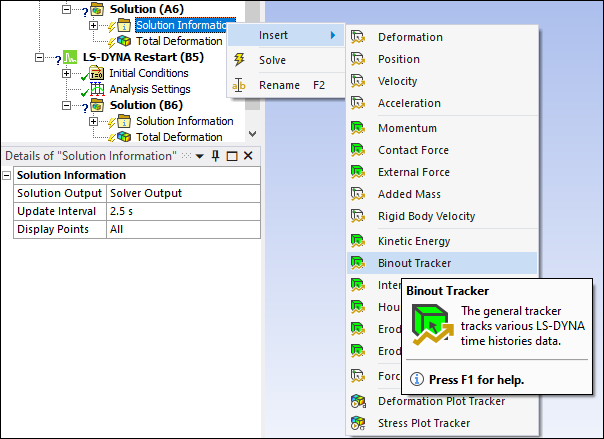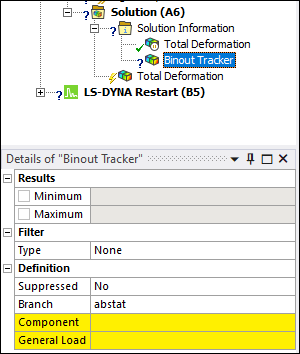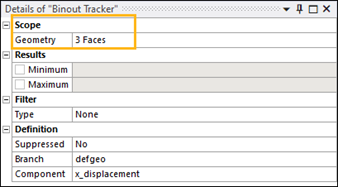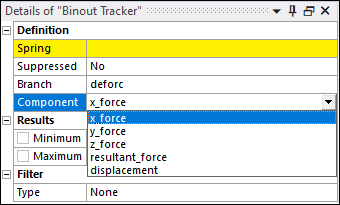The Binout Result Tracker provides extensive access to the various results stored in the LS-DYNA result file binout.
To add a Binout Tracker, right-click the Solution Information object in the tree and select > .

Binout is a binary file using the LSTC Data Archival Format or LSDA. This format mimics a Unix file system. Each result has the structure of a directory. It is called a Branch in the LSDA terminology. Each branch can have several subdirectories (sub-branches).

Different Scope options are available depending on the selected Branch. When scoping to an object in the Mechanical tree, the result directly relates to the selected object - for example, a Joint. When scoping to Geometry or Mesh, the result will be the sum of all items in the scoping - there is no weighting or averaging of the items when summing.

Each branch can have a number of components that allow you to access and plot the various results available for that branch.

The dbfsi data is available when ALE FSI Tracker Data is defined under Output Controls. FSI data is created for each Coupling object with the specified output frequency.

Mechanical supports the following Binout branches (Mechanical does not currently support all available components for each branch):
| abstat : Airbags results. |
| bndout: Boundary condition forces and energy results. |
| dbfsi: Fluid structure interaction data. |
| defgeo: Deformed geometry file results. |
| deforc: Discrete spring and discrete damper results. |
| elout: Elemental results. Mechanical defaults to and only supports elout beam or shell IP1 (Integration Point 1) results. |
| glstat: Global results. |
| jntforc: Joint results. |
| matsum: Part energies results. |
| nodout: Nodal translational motion results. |
| rbdout: Motion of rigid bodies in global and local coordinate systems. |
| rcforc: Resultant contact interface forces. |
| rwforc: Rigidwall forces. |
| secforc: Cross section forces. |
| sleout: Contact interface energies. |
| spcforc: Single point constraint reaction forces. |
| trhist: ALE tracer results. |
| randles: Randles cell results. |
| isoPot: Isopotential Connection results. |


